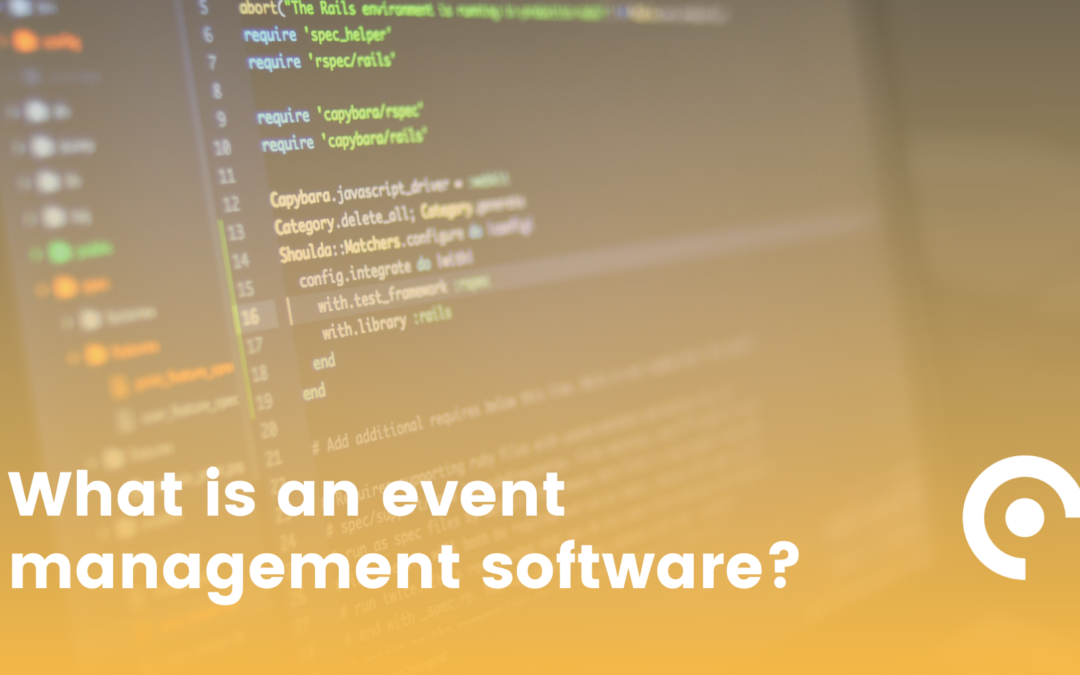Índice de contenidos
Selecting the right event management software can be the difference between the success and failure of your event. With the variety of options available on the market, it is crucial to understand what features and functionality are essential to meet your specific needs. This article will guide you through the key steps to make an informed and successful decision.
The importance of event management software
Event management software has become an indispensable tool for event organizers. It facilitates the planning, execution and evaluation of events, enabling greater efficiency and enhancing the attendee experience. From registration management to post-event analysis, good software can simplify countless tasks and provide valuable data for future decisions.
Defining your event needs
Type of event
Before choosing software, you should consider the type of event you are organizing. Is it a conference, a workshop, a festival or a corporate meeting? Each type of event has specific requirements that must be met.
Number of attendees
The number of attendees influences the choice of software. Some programs are designed for small events, while others handle large volumes of participants. It is vital to select one that can scale with your needs.

Budget
Budget is always a determining factor. Define how much you are willing to invest in event management software and look for options that offer good value for money. Remember that the cheapest is not always the best.
Key features of event management software
Ease of use
The interface should be intuitive and easy to use. Both organizers and attendees should be able to navigate and use the software without complications.
Integration with other tools
The software should integrate easily with other tools you are already using, such as marketing platforms, payment systems and social media applications.

Registration functionalities
An efficient registration system is critical. Look for software that offers customized registration options, ticket management and attendee tracking.
Analysis and reports
The ability to generate detailed reports on the event is crucial to evaluate its success and improve future editions. Make sure the software can provide clear and accurate metrics.
Evaluation of software suppliers
Reputation and expertise
Research the vendor’s reputation and experience. Read reviews from other users and review success stories to make sure the software has been tested and is reliable.
Customer Support
Customer support is essential. You must be able to count on fast and efficient help in case of problems or doubts. Make sure that the supplier offers support in case of problems or questions. Make sure that the supplier offers continuous support and has good communication channels.
Price and payment flexibility
Compare prices and check for flexible payment options. Some providers offer monthly, annual or per-event subscriptions, which may better suit your budget.
Tests and demonstrations
Before making a final decision, request a software demo or a free trial. This will allow you to evaluate its functionality in real time and make sure it meets your expectations.

Implementation and training
Once the software has been selected, plan its implementation and make sure your team is properly trained. Good training ensures that all users can take full advantage of the software’s functionality.
Choosing the right event management software is a process that requires time and analysis. By following these steps you can ensure you make an informed decision that will benefit both your organizers and your attendees. The right technology can transform the way you manage your events, taking them to a new level of efficiency and success.
Related blogs:
- A look into the future: Emerging AI trends in event management
- Unlocking the potential: The importance of an effective kick-off
- What do you need to organize a festival: Event Software
- The definitive guide of badges for your events
- Exploring team building workshops and their integration with technology

